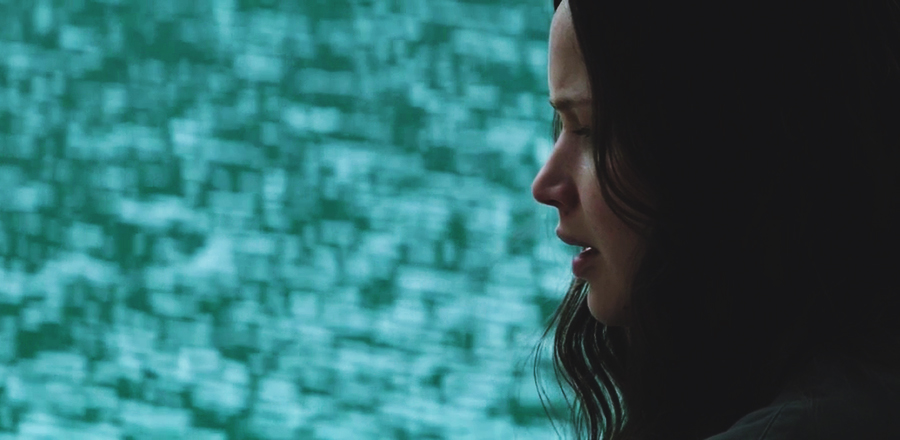Tourist | Epilogue
The sight of Redistance’s facade brings my feet to a sudden, scuffling stop. Fingers tug at mine and Paiden turns back to me, laughter on her lips dying as her momentum pulls against the gravity of my inertia.
“Allie?” She steps close, brushes my cheek with her thumb. “Hey, it’s okay. You’ll be fine.”
Logically: yes, Paiden, I know that already. Emotionally: I want to turn and run. Run all the way home and burrow into the blankets and clean laundry piled upon my bed. (Clean, at least. Finally.)
Paiden brushes my fringe—too long, she keeps reminding me—out of my eyes and gives me the most radiant smile in the entire world. I would swear on my dying breath that on the rainiest day, I could feel the sun’s warmth when she smiles at me, and I can feel it now. She thaws my frozen bones, breathes life back into my moribund soul.
I turn my face up to meet hers, and, oh, how happy I am to have her here with me. With her golden hair held back by a bouquet of a hairclip and her sunbeam eyes, I’d believe I’m staring right into the face of all that is good in the world.
“Hey Allie,” she says.
“Hey,” I say. She kisses my forehead and leans back, fingers intertwined with mine.
“You don’t have to do this if you don’t want to, you know. Nobody would think less of you.”
Over her shoulder, I catch Chase as he spots us through the gallery windows. He starts to wave, then frowns and tries to pretend he hasn’t seen us at all. But if there’s one thing I’ve learned, it’s that he’s not so good at pretending anything.
I shake my head. “I need to.”
Tourist | Fourteen
The audio cuts off at the loamy scrape of a shovel tasting soil. We are torn from Lissa’s voice back into the real world. Moments stretch within Chase’s apartment. We sit frozen and silent: Audrey with her hand over her mouth, Chase’s fist balled tight upon the desk, hot tears dripping from my chin. We are, the three of us, briefly connected in our shock, our horror, our infinite sorrow for Lissa.
“This isn’t fair,” Audrey whispers. Her fingers muffle her words, yet they fill the room. This isn’t fair. None of this is fair, I decide—had decided long ago, as glass shattered and metal crumpled around my fragile, biological body.
There’s movement to my side. Chase slumping onto forearms, fingertips clawing chaotic hair. Audrey lays a hand on his back, her bright eyes meeting mine over his hunched form. Here we are: human and ersatz. We all mourn the same losses when it comes down to it. No wonder artificials so often stick to our own, I realise. We don’t die the same. We don’t lose the same.
And then it hits me: the trade-off I’ve never considered. Paiden, with her open home and loving fathers, can only be all too aware of their impending mortality. While I wanted to live like her, maybe she was looking at my eternal sister and wishing her own family could continue on and on until the end of time.
Shit. When this is all over, I need to apologize to her.
Tourist | Thirteen
Brief note: this ended up not being the last chapter, oops! One more.
A phone rings.
In this room, a phone rings. It’s a quiet tone, so soft and melodic I almost mistake it for the music from the TV. Except that music stopped playing over an hour ago.
This is something else.
When I look around, Chase is sitting cross-legged before the window, his body silhouetted by the streetlight, his face lit by the ringing phone in his hand. He tilts his head up, eyes meeting my own. How mine must glow for him, here in this dark room.
“You have her phone,” he says.
“You’re the blocked number,” I say. There’s a pause, a tense, heavy breath held between the two of us. He averts his gaze.
“You’re not telling me something, Chase,” I push. “I don’t know what you’re hiding, but I know you and Audrey lied about why Emily attacked Lissa.” I hang up the call and wave the phone in his direction. “Now I know Lissa didn’t want to see you, and you went to her house anyway. What did you say to her—what did you do to her?”
Tourist | Twelve
Content warnings for alcohol, suicide, allusions to sexual violence.
If there’s one person I never want to see when I wake, it’s Sam. So when I open my eyes to her sitting at an unfamiliar desk in an unfamiliar room, her back to me, my first reaction isn’t confusion. It’s a sudden exhaustion at the unfairness of the world to place me somewhere so obviously hers.
The room is a mess. Creased clothes tossed over every surface, at least three mugs on the desk, photos peeling from where they were stuck to the wall. Gaps like gaping holes where pictures have already fallen into the chaos of the room. What sticks out most of all is a jar filled with half-dead flowers beside Sam. There’s enough life in them still to justify keeping them, but I can’t help but feel that the room itself is pulling the flowers closer to death. The limp, purple blossoms lean away from Sam as if trying to escape her anger—her room’s atrophying presence.
Or maybe that’s just how things are when you’re organic. Flowers die. Sam loses Lissa. I continue existing.
Start With What You Know Is True: Mental Health in The Hunger Games
In the real world, mental illnesses affect millions of people, and yet there’s often a silence surrounding the issues, brought on by social stigmas and a lack of education on mental health. Depression, post-traumatic stress disorder, and anxiety and panic disorders are prevalent within The Hunger Games, experienced by Katniss Everdeen and those around her. The trilogy highlights just how much trauma can affect people, especially the young adults and children manipulated by those much older.
While the novels are far more adept at portraying the characters’ understanding of and struggles with their respective illnesses, the films do make an effort. The opening scene of Catching Fire, where Katniss hallucinates another tribute from the Games while hunting with Gale, visually captures the nightmares of the arena that plague Katniss, setting up the audience’s understanding of her mental state following the 74th Hunger Games. The majority of Katniss’ interior struggles, however, are found within the pages of the books.

